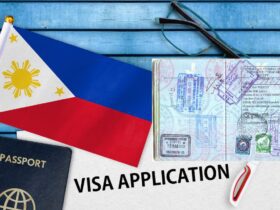Travelling to Europe is a dream for many, and the Schengen Area, comprising 27 European countries, is one of the most sought-after destinations. The Schengen visa allows travellers to move freely within these countries for short stays, making it a convenient gateway to explore diverse cultures, landscapes, and historical sites. However, securing a Schengen visa can be a challenging process, often requiring meticulous preparation and attention to detail. The complexity arises from the strict requirements and rigorous scrutiny by the consulates or embassies of the Schengen countries. Each year, numerous applications are rejected due to avoidable mistakes and insufficient documentation.
Applying for a Schengen visa can be a complex and daunting process. However, with careful preparation and attention to detail, you can increase your chances of securing approval. Here are seven essential tips to help you navigate the application process successfully.
1. Understand the Visa Requirements
The first step in obtaining a Schengen visa is to thoroughly understand the requirements. Each Schengen country may have slightly different criteria, so it is crucial to check the specific requirements of the country you intend to visit. Generally, the common requirements include:
- A completed and signed visa application form.
- A valid passport with at least two blank pages and a validity that extends at least three months beyond your planned departure from the Schengen area.
- Recent passport-sized photographs.
- Travel insurance with a minimum coverage of €30,000 for medical emergencies.
- Proof of accommodation for your stay.
- Detailed travel itinerary.
- Proof of sufficient financial means to support yourself during your stay.
- Documentation of employment or student status.
- Payment of the visa fee.
Ensure you have all the required documents before submitting your application.

2. Provide Accurate and Complete Information
Accuracy and completeness are crucial when filling out your visa application form. Any discrepancies or missing information can lead to delays or even rejection. Double-check all the details, including your name, passport number, travel dates, and other personal information. Make sure your travel itinerary and accommodation details match your planned activities and dates.
Additionally, provide a clear and concise explanation of the purpose of your trip. Whether you are traveling for tourism, business, or visiting family, ensure your reasons are well-documented and supported by relevant documents.
3. Show Proof of Sufficient Financial Means

One of the critical factors in obtaining a Schengen visa is demonstrating that you have sufficient financial means to support yourself during your stay. You can provide this proof in several ways:
- Bank statements from the last three to six months showing a consistent balance and regular transactions.
- Proof of employment, such as a letter from your employer stating your position, salary, and duration of employment.
- Income tax returns.
- Sponsorship letters if someone else is funding your trip, along with their bank statements and proof of relationship.
Ensure that the financial documents are recent and clearly show that you have enough funds to cover your expenses during your trip.
4. Obtain Travel Insurance
Travel insurance is a mandatory requirement for a Schengen visa. The insurance must cover the entire duration of your stay in the Schengen area and have a minimum coverage of €30,000 for medical emergencies, including repatriation in case of death. Ensure that the insurance policy meets these requirements and provide a copy of the insurance certificate with your application.
Some embassies or consulates may have a list of approved insurance providers, so it is advisable to check with the relevant authority before purchasing your policy.
5. Book Your Accommodation in Advance

Proof of accommodation is another essential requirement for a Schengen visa. You need to provide evidence of where you will be staying during your visit. This can include:
- Hotel reservations with your name and the dates of your stay.
- A rental agreement if you are renting an apartment.
- An invitation letter from a host if you are staying with friends or family, along with their address and a copy of their ID or residence permit.
Ensure that your accommodation bookings match the dates on your travel itinerary and other documents.
You May Also Like These
6. Prepare for the Visa Interview

In some cases, you may be required to attend a visa interview at the embassy or consulate. The interview is an opportunity for the visa officer to verify the information in your application and assess your intentions for visiting the Schengen area. To prepare for the interview:
- Dress professionally and arrive on time.
- Bring all the original documents and copies that you submitted with your application.
- Be ready to answer questions about your travel plans, financial situation, employment status, and purpose of the trip.
- Be honest and concise in your responses.
Confidence and clarity during the interview can positively influence the visa officer’s decision.
7. Apply Early and Allow for Processing Time
The Schengen visa application process can take time, and it is advisable to apply well in advance of your planned travel dates. Typically, you can apply for a visa up to six months before your trip. Processing times vary depending on the embassy or consulate, but it usually takes around 15 calendar days. In some cases, it may take longer, especially during peak travel seasons.
By applying early, you allow sufficient time for processing and address any potential issues or additional requirements that may arise. This reduces the risk of last-minute complications affecting your travel plans.
You May Also Like These
Conclusion
Obtaining a Schengen visa requires careful preparation and attention to detail. By understanding the requirements, providing accurate and complete information, demonstrating sufficient financial means, obtaining travel insurance, booking accommodation in advance, preparing for the visa interview, and applying early, you can increase your chances of securing visa approval.
Remember that each application is unique, and the requirements may vary slightly depending on the specific Schengen country you are applying to visit. By following these tips and ensuring you meet all the necessary criteria, you can navigate the visa application process with confidence and look forward to your trip to the Schengen area.



























Leave a Reply
View Comments